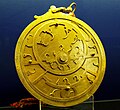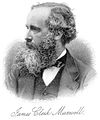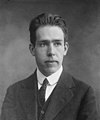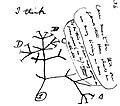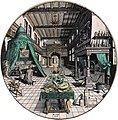History of science
Jump to navigation
Jump to search
study of the historical development of science and scientific knowledge | |||||
| Upload media | |||||
| Instance of |
| ||||
|---|---|---|---|---|---|
| Subclass of |
| ||||
| Part of |
| ||||
| Facet of | |||||
| Different from | |||||
| Said to be the same as | history of science | ||||
| |||||
Organizations, societies and institutions
[edit]-
Académie des Sciences (1698)
Instruments and laboratories
[edit]-
Armillary sphere, ca. 1582
-
Astrolabe, 18th century
-
Orrery
-
Burning lamp
-
Montgolfier
-
Edison labs
Portraits
[edit]-
Ptolemy (medieval)
-
Vesalius (1543)
-
Copernicus (early 16th century)
-
Galilei (1636)
-
Johannes Kepler (1610)
-
René Descartes
-
Robert Boyle (1689)
-
Gottfried Wilhelm von Leibniz (1700)
-
Isaac Newton (1689)
-
Leonhard Euler
-
Carolus Linnaeus (1775)
-
Georges-Louis Leclerc, Comte de Buffon
-
Pierre-Simon Laplace
-
Alexander von Humboldt (1806)
-
Charles Lyell
-
Michael Faraday
-
 Charles Darwin (1868)
Charles Darwin (1868) -
Louis Pasteur (1885)
-
Louis Pasteur
-
James Clerk Maxwell
-
Niels Bohr
-
Thomas Hunt Morgan (1891)
-
Albert Einstein (1947)
-
 Albert Einstein (1947)
Albert Einstein (1947)
Frontispieces and title pages
[edit]-
De corporis humani fabrica by Vesalius (1543)
-
De revolutionibus by Copernicus (1543)
-
Instauratio magna by Bacon (1620)
-
Tabulae Rudolphinae by Kepler (1627)
-
Dialogo by Galileo (1632)
-
Discours de la Methode by Descartes (1637)
-
Historia Plantarum by Theophrastus (1644)
-
Principia Mathematica by Newton (1686)
-
Opticks by Newton (1704)
-
Elémens de la philosophie de Neuton by Voltaire (1738)
-
Encyclopedie of Diderot (1751)
-
Systema Naturae by Linnaeus (10th ed., 1758)
-
The Temple of Nature by Erasmus Darwin (1803)
-
Origin of Species by Charles Darwin (1859)
-
Man's Place in Nature by Huxley (1863)
-
pdf
Science and religion
[edit]-
Galileo facing the Roman Inquisition by Cristiano Banti (1857)
-
Galileo before the Holy Office by Joseph-Nicolas Robert-Fleury
-
Philosophy and Christian Art by Daniel Huntington (1868)
-
Detail from Education by Louis Comfort Tiffany (1890)
By field
[edit]-
Sir William Herschel
-
Caroline Herschel
-
Maria Mitchell
-
Diagrams from Theorice Novae Planetarum by George Puerbach
-
Astronomers Studying an Eclipse by Antoine Caron (1571)
-
Diagram from Mysterium Cosmographicum by Johannes Kepler (1596)
-
A priest-astronomer in the Chinese tradition by Ferdinand Verbiest (1675)
-
The "Flammarion Woodcut" (1888)
-
L'Astronomie tapestry
Biology
[edit]-
Detail from De arte venandi cum avibus, late 13th century
-
Illustration of cork from Robert Hooke's Micrographia
-
Sketch of Darwin's first evolutionary tree
-
Illustration of chromosomes crossing over by Thomas Hunt Morgan
-
specimens
-
Hieronymus Brunschwig Liber de arte Distillandi de Compositis (Strassburg, 1512)
-
Alchemist's Laboratory by Heinrich Khunrath (1595)
-
Santorio Santorio's device for measuring weight before and after eating (1614)
-
Alchemist Filling Wet Drug Jars, 17th C.
-
The Alchemist in Search of the Philosopher's Stone by Joseph Wright of Derby (1771)
-
Justus van Bentum, The Explosion in the Alchemist’s Laboratory, 17/18th C.
-
Franz Christoph Janneck, The Medical Alchemist, !8th C.
-
The Alchemist by William Fettes Douglas
-
Der Alchimist by Carl Spitzweg (1860)
-
Alchemist Sędziwój by Jan Matejko (1867)
-
Thomas Wijck, Alchemist in His Study with a Woman Making Lace, 17th C.
-
Reconstruction of the Watson-Crick DNA model
-
lab 1910
Earth sciences
[edit]-
Shark's head illustration by Nicolas Steno
-
Biogeographical illustration by Alexander von Humboldt
-
Henry de la Beche watercolor of fossil life
Mathematics
[edit]-
Mary Fairfax, Mrs William Somerville (1834)
Medicine
[edit]-
Paracelsus
-
Wilhelm Fabry, German surgeon, photo of bust in marketplace of birth town
-
Rembrandt: Anatomie des Dr. Tulp
-
Deutsch: Sympathische Entsprechungen zwischen Pflanzen und Tieren (Signaturen). Holzschnitt nach Auffassung Giambattista della Portas (16. Jh.)
Physics
[edit]-
Madame Du Châtelet at her desk, by De La Tour, 18th century
-
Marie Curie (born Maria Salomea Skłodowska), Nobel Prize, (1911)
-
Lise Meitner (1946)
Social sciences
[edit]Technology
[edit]-
John Harrison
-
Ada Lovelace, by Margaret Sarah Carpenter, 1836
-
Charles Babbage, by Samuel Lawrence, 1845




